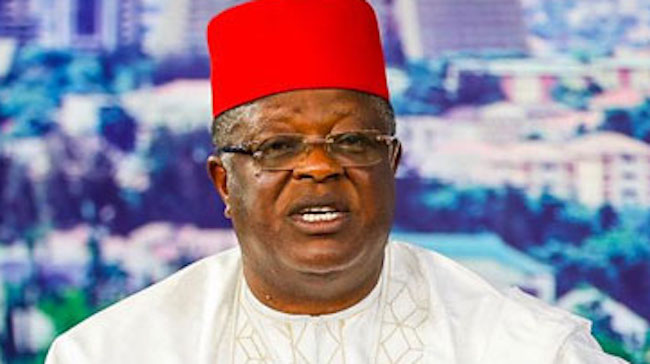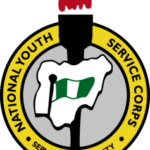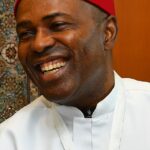*Says current design is 10 lanes with rail line, not 8 lanes without rail
*Keeps mum on choice of Gilbert Chagoury’s Hitech
By Daniel Tyokua and Stellamaries Amuwa
The Minister of Works, Engr. Nwaeze David Umahi, has disclosed why the Lagos-Calabar coastal highway will gulp N4 billion per kilometre instead of N8 billion per kilometer, as reportedly claimed by former Vice-President Atiku Abubakar.
Umahi speaking during an interview on Arise Television on Thursday noted that at N4bn per km, the entire coastal project will be completed at a total cost of N2.8 trillion.
The minister also dismissed claims that the project didn’t follow the procurement process, stressing that the contract was awarded on a counterpart-funding basis and not on a Public-Private-Partnership as erroneously claimed.
Recall that Atiku, had last week, questioned President Bola Tinubu administration’s decision to allegedly award the contract to Gilbert Chagoury’s Hitech without a competitive bidding, and demanded a full disclosure of the cost of the highway project, which Umahi avoided.
The number two citizen also wondered why the Tinubu administration released N1.06tn for the pilot phase, or six per cent of the project, and to begin at the Eko Atlantic and is expected to terminate at the Lekki Deep Sea Port, instead of from Calabar.
Reacting to Atiku, Umahi explained that despite the soaring cost of materials in the construction industry, due to inflation and supply chain disruptions, the ministry is committed to prudence, adding that the project would be completed in eight years, on concrete pavement and four-lane carriageway.
He also explained that although N1.06tn was appropriated, the full amount had not been disbursed.
Umahi said: “People are just building castles without knowledge and they don’t know figures. We are going to compare the cross-section of the one the former Vice-President mentioned that was renegotiated for $11.1bn for 700 km.
“You have to ask what was there to be constructed? And the only available design is from NDDC.
“They had designed the entire 700 km, but we are not following exactly that pattern or right of way. We have a modification. The original design had two carriageways on each side of the road with four lanes.
“And in the middle, they did not provide for train track. It’s just going to be a water-collecting basin.
“But the coastal road we are constructing has a total of 10 lanes, not only that it has a total of 10 lanes, it also has what we call shoulders.
“And the total shoulders can be put at about 23 metres. When you put the total concrete pavement we are doing, it’s about 59 metres. When you put the total flexible pavement that he quoted, it’s about 23 metres.
“So when you run the figures, you find out that under his calculation, it is giving you about over N19bn per kilometre.
“Now if you divide it by the 23 kilometres that they are doing, it is about 2.225 times a standard superhighway carriageway, which is N11.55bn.
“Whereas what we are doing, if you divide it, you get N5.167bn. So when you divide using our 1.067, you get about N4bn/km. If you go back to what he (Atiku) quoted, you will get over N8bn.
“So using concrete, which should be more expensive because of the kind of terrain we have, and using flexible pavement, which shouldn’t stand the coastal route, you will find out that our cost is N4bn instead of the N8bn claimed by the former Vice-President.”
He also said that rather than a PPP arrangement, the present administration is doing an Engineering, Procurement, Construction and Finance programme as currently used on the Abuja-Markurdi road project.
“And so in this particular project of Abuja to Makurdi, which is being handled by China Harbour, the government is paying 50 per cent counterpart funding.
“Then, you also have from Makurdi to 9th Mile in Enugu state, where we are also paying 50 per cent counterpart funding. So, there’s a marked difference between PPP and EPC plus F.
“And in this particular project, there will be a negotiated counterpart funding of between 15 and 30 per cent.
“When I was a Governor, I had the African Development Bank fund a project through counterpart funding and I used some of the money to build some sections of the road.
“So part of what we are constructing under sections one, two and three currently funded by the federal government will fall under the percentage counterpart funding.
“When we finalise the negotiation, it will be between 15 per cent and 30 per cent,” Umahi stated.



